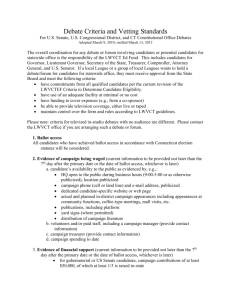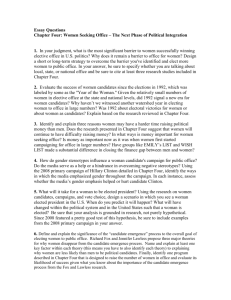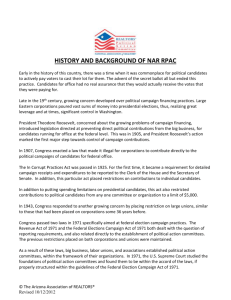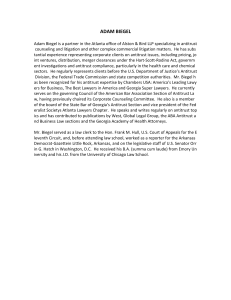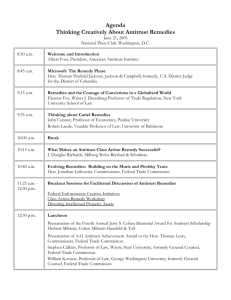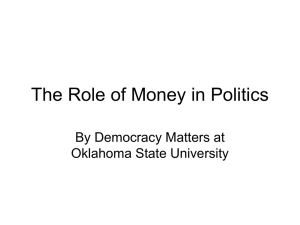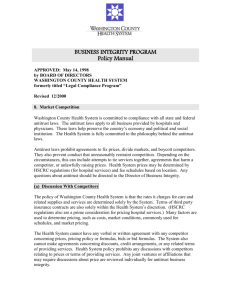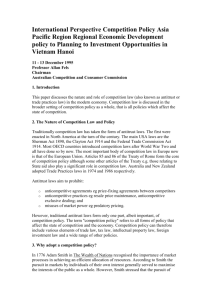Chapter 4 – Legal, Regulatory, and Political Issues – Summary
advertisement
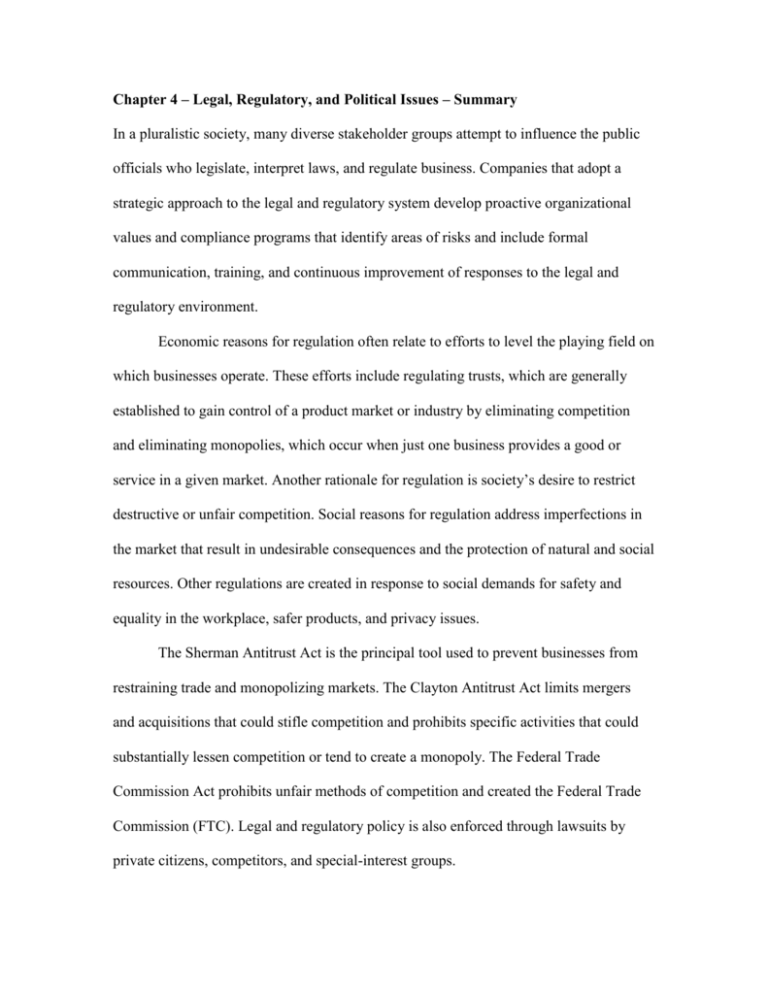
Chapter 4 – Legal, Regulatory, and Political Issues – Summary In a pluralistic society, many diverse stakeholder groups attempt to influence the public officials who legislate, interpret laws, and regulate business. Companies that adopt a strategic approach to the legal and regulatory system develop proactive organizational values and compliance programs that identify areas of risks and include formal communication, training, and continuous improvement of responses to the legal and regulatory environment. Economic reasons for regulation often relate to efforts to level the playing field on which businesses operate. These efforts include regulating trusts, which are generally established to gain control of a product market or industry by eliminating competition and eliminating monopolies, which occur when just one business provides a good or service in a given market. Another rationale for regulation is society’s desire to restrict destructive or unfair competition. Social reasons for regulation address imperfections in the market that result in undesirable consequences and the protection of natural and social resources. Other regulations are created in response to social demands for safety and equality in the workplace, safer products, and privacy issues. The Sherman Antitrust Act is the principal tool used to prevent businesses from restraining trade and monopolizing markets. The Clayton Antitrust Act limits mergers and acquisitions that could stifle competition and prohibits specific activities that could substantially lessen competition or tend to create a monopoly. The Federal Trade Commission Act prohibits unfair methods of competition and created the Federal Trade Commission (FTC). Legal and regulatory policy is also enforced through lawsuits by private citizens, competitors, and special-interest groups. A company that engages in commerce beyond its own country must contend with the complex relationship among the laws of its own nation, international laws, and the laws of the nation in which it will be trading. There is considerable variation and focus among different nations’ laws, but many countries’ antitrust laws are quite similar to those of the United States. Regulation creates numerous costs for businesses, consumers, and society at large. Some measures of these costs include administrative spending patterns, staffing levels of federal regulatory agencies, and costs businesses incur in complying with regulations. The cost of regulation is passed on to consumers in the form of higher prices and may stifle product innovation and investments in new facilities and equipment. Regulation also provides many benefits, including greater equality in the workplace, safer workplaces, resources for disadvantaged members of society, safer products, more information about and greater choices among products, cleaner air and water, and the preservation of wildlife habitats. Antitrust laws and regulations strengthen competition and spur companies to invest in research and development. Many businesses and individuals believe that the costs of regulation outweigh its benefits. Some people desire complete deregulation, or removal of regulatory authority. Because government is a stakeholder of business (and vice versa), businesses and government can work together as both legitimately participate in the political process. Business participation can be a positive or negative force in society’s interest, depending not only on the outcome but also on the perspective of various stakeholders. Changes over the last forty years have shaped the political environment in which businesses operate. Among the most significant of these changes were amendments to the Legislative Reorganization Act and the Federal Election Campaign Act, which had the effect of reducing the importance of political parties. Many candidates for elected offices turned to increasingly powerful special-interest groups to raise funds to campaign for elected office. Some organizations view regulatory and legal forces as beyond their control and simply react to conditions arising from those forces; other firms seek to influence the political process to achieve their goals. One way they can do so is through lobbying, the process of working to persuade public and/or government officials to favor a particular position in decision making. Companies can also influence the political process through political action committees, which are organizations that solicit donations from individuals and then contribute these funds to candidates running for political office. Corporate funds may also be channeled into candidates’ campaign coffers as corporate executives’ or stockholders’ personal contributions, although such donations can violate the spirit of corporate campaign laws. Although laws limit corporate contributions to specific candidates, it is acceptable for businesses and other organizations to make donations to political parties. More companies are establishing organizational compliance programs to ensure that they operate legally and responsibly as well as to generate a competitive advantage based on a reputation for good citizenship. Under the Federal Sentencing Guidelines for Organizations (FSGO), a company that wants to avoid or limit fines and other penalties as a result of an employee’s crime must be able to demonstrate that it has implemented a reasonable program for deterring and preventing misconduct. To implement an effective compliance program, an organization should develop a code of conduct that communicates expected standards, assign oversight of the program to high-ranking personnel who abide by legal and ethical standards, communicate standards through training and other mechanisms, monitor and audit to detect wrongdoing, punish individuals responsible for misconduct, and take steps to continuously improve the program. A strong compliance program acts as a buffer to keep employees from committing crimes and to protect a company’s reputation should wrongdoing occur despite its best efforts. Enacted after many corporate financial fraud scandals, the Sarbanes-Oxley Act created the Public Company Accounting Oversight Board to provide oversight and set standards for the accounting firms that audit public companies. The board has investigatory and disciplinary power over accounting firm auditors and securities analysts. The act requires corporations to take responsibility to provide principles-based ethical leadership and holds CEOs and CFOs personally accountable for the credibility and accuracy of their company’s financial statements. Ideally, the act will provide for a new standard of ethical behavior for U.S. business, especially for top management and boards of directors responsible for company oversight.
